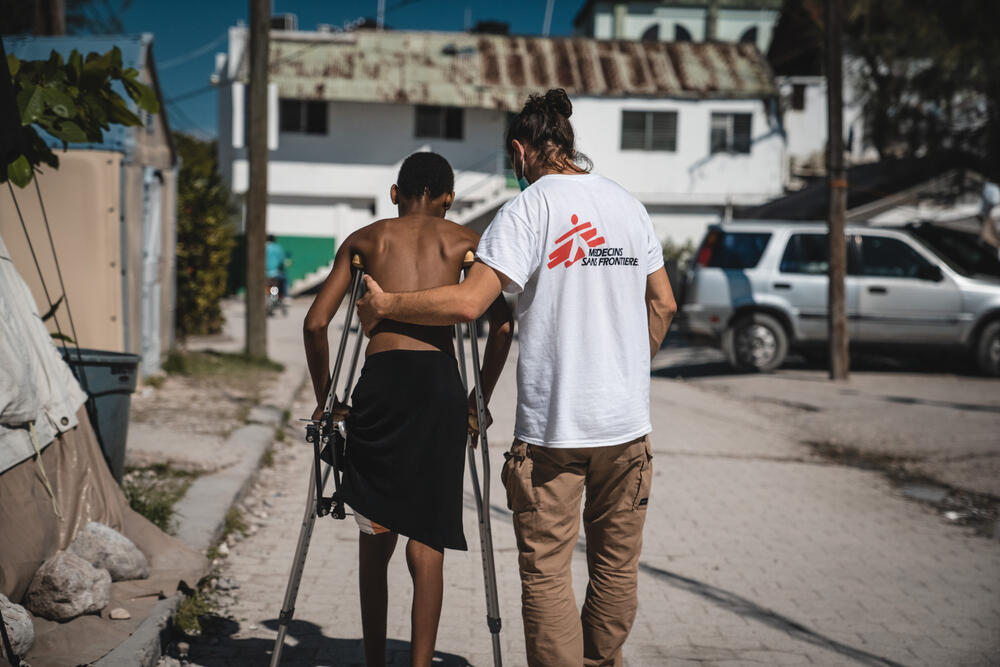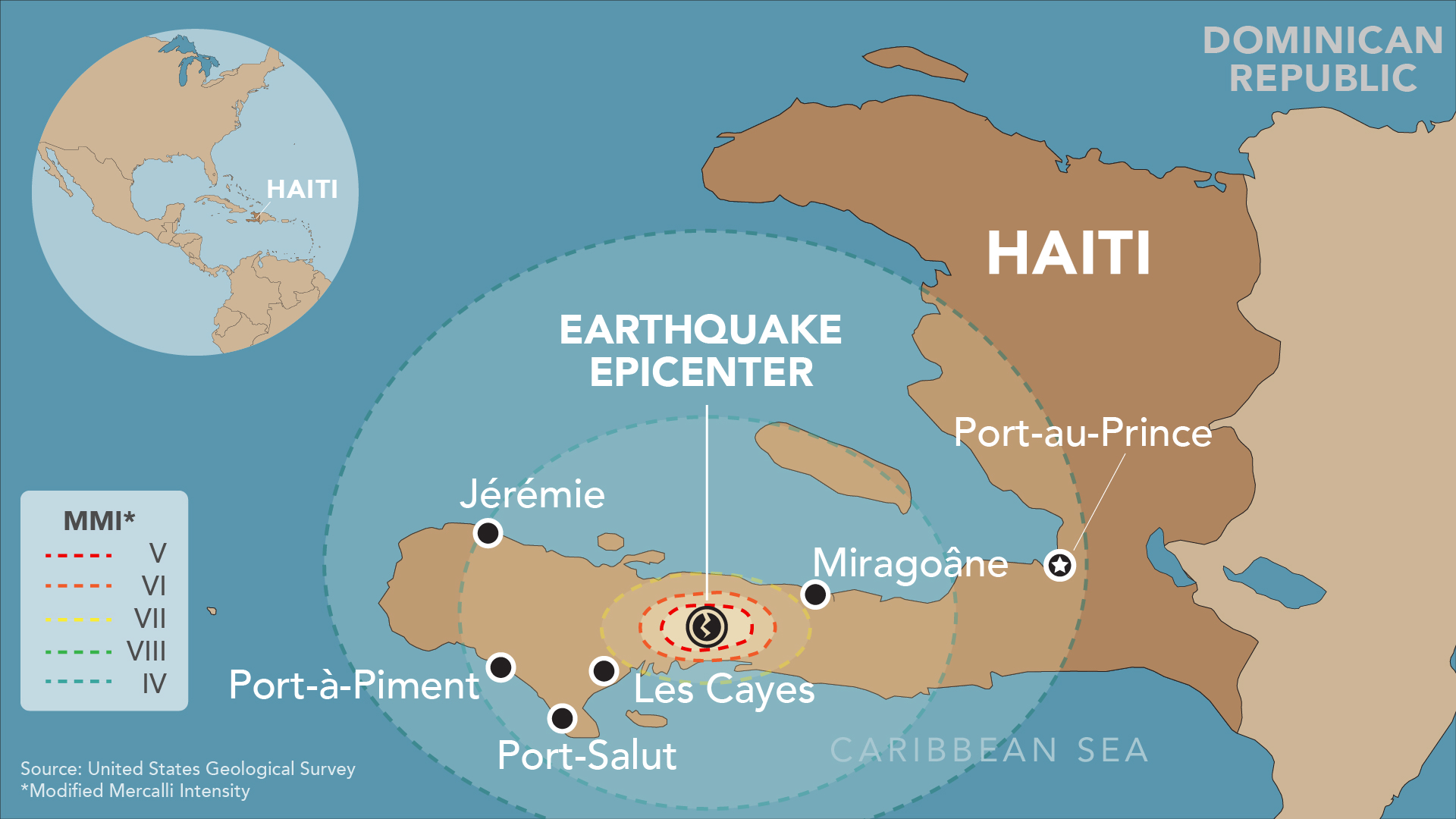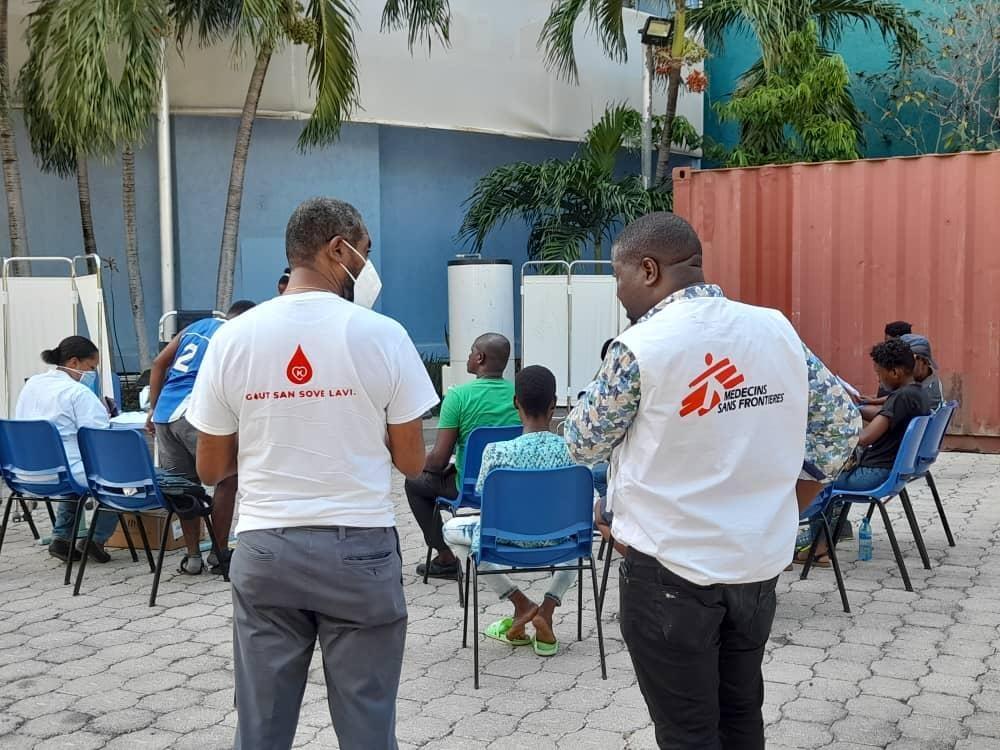Haiti earthquake: MSF responds to urgent medical needs
At 8:30 am on 14 August, a magnitude 7.2 earthquake struck the southern region of Haiti, specifically the provinces of Grande Anse, Nippes, and Sud. Within hours, Médecins Sans Frontières/Doctors Without Borders (MSF) teams were helping the wounded.
As of 16 August, the provisional death toll has climbed over 1,300 with more than 5,700 people injured, according to Haiti’s Office for Civil Protection.
These figures are expected to change in the coming hours and days, as many municipalities in the affected areas remain isolated from the rest of the country.
Homes and infrastructure, including medical facilities, have been extensively destroyed and damaged in the affected region.
Some hospitals had to evacuate their patients, and some lack medical equipment and medicines. Aftershocks and landslides have caused additional damage.
A tropical depression, Grace, is expected to hit earthquake-affected areas of Haiti with heavy rain on 16 August, raising additional concerns.
MSF's response in Grand Anse, Nippes, and Sud provinces
In the first hours after the earthquake, the MSF team based in Port-à-Piment and an emergency medical team from Port-au-Prince began assisting injured people in Sud province.

Help us prepare for the next emergency
The hospital in Port-à-Piment where we provide sexual and reproductive healthcare was damaged.
The patients, most of whom were receiving maternal healthcare, were evacuated to a tent where the MSF team continues to provide care. In Port-à-Piment, we are also stabilising patients injured by the earthquake.
In Port-Salut, an MSF team received at least 16 patients with injuries and fractures, including patients referred from Port-à-Piment and Les Cayes. MSF and its partners are stabilising the wounded and providing surgical and follow-up care.
In Les Cayes, an MSF team is providing medical supplies and staff to work in the general hospital.
An MSF team is assessing needs in the more remote location of Les Anglais and has been transporting patients from Les Anglais to Port-a-Piment and other areas.
Vehicles are unable to travel the entire way to Les Anglais at the moment so patients must be shuttled between two different vehicles, making the trip especially difficult.
An MSF team arrived on 15 August in Nippes and visited the Sainte-Thérèse hospital in Miragane, which has received 59 wounded.
We donated supplies to the hospital and an MSF surgeon and nurse are providing medical support. Another team is assessing the situation in Baradères and Petit Trou in Nippes, which have reportedly been seriously affected.
We also sent emergency supplies from Port-au-Prince to Sud (first aid kits, tents for emergency clinics, medicines and supplies for blood transfusions and plaster casts).
Some access routes, such as the road between Les Cayes and Jérémie, are seriously damaged and complicate the deployment of aid. However, an MSF team, including two surgeons and an operating room nurse, brought medical supplies to Jeremie on 15 August and began working in the town's hospital.
We plan to reinforce our activities in the coming days, sending more medical teams, including surgeons. We are preparing to send medical and emergency supplies from abroad, including two cargo planes from Brussels.
MSF's response in Port-au-Prince
MSF is treating injured people in its trauma hospital in Tabarre. On 14 August, six injured people from the south were admitted to this facility.
To address potential blood shortages, we launched a blood collection campaign in the Turgeau neighbourhood of Port-au-Prince on 14 August, in partnership with local authorities.
On 15 August, we opened an emergency centre in the Turgeau neighbourhood and began providing stabilisation care to injured patients.
MSF in Haiti
MSF has been present in Haiti for 30 years. Our regular activities continue, including at the Tabarre hospital in Port-au-Prince, where we are treating severely burned patients as well as people with life-threatening injuries.
We also provide maternal and sexual and reproductive healthcare in Port-a-Piment in Haiti's Sud province and treat victims of sexual and gender-based violence in Port-au-Prince and Gonaïves.
After more than 15 years, MSF was forced to close its emergency centre in Martissant, Port-au-Prince, after an armed group fired on the facility on 26 June 2021, putting medical staff and patients at risk.
Earlier in the year, we were forced to relocate our burns hospital from Drouillard to Tabarre due to insecurity.


